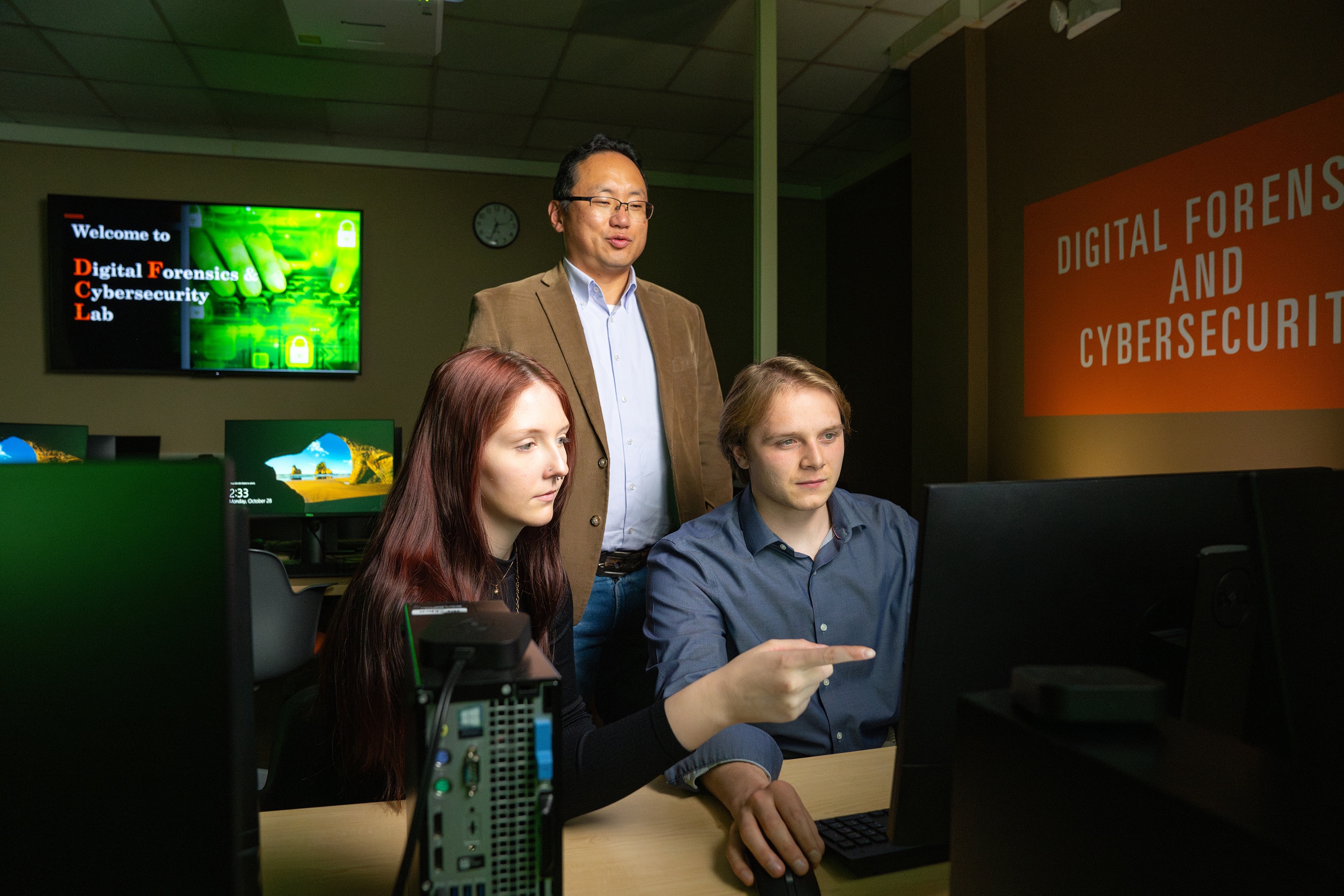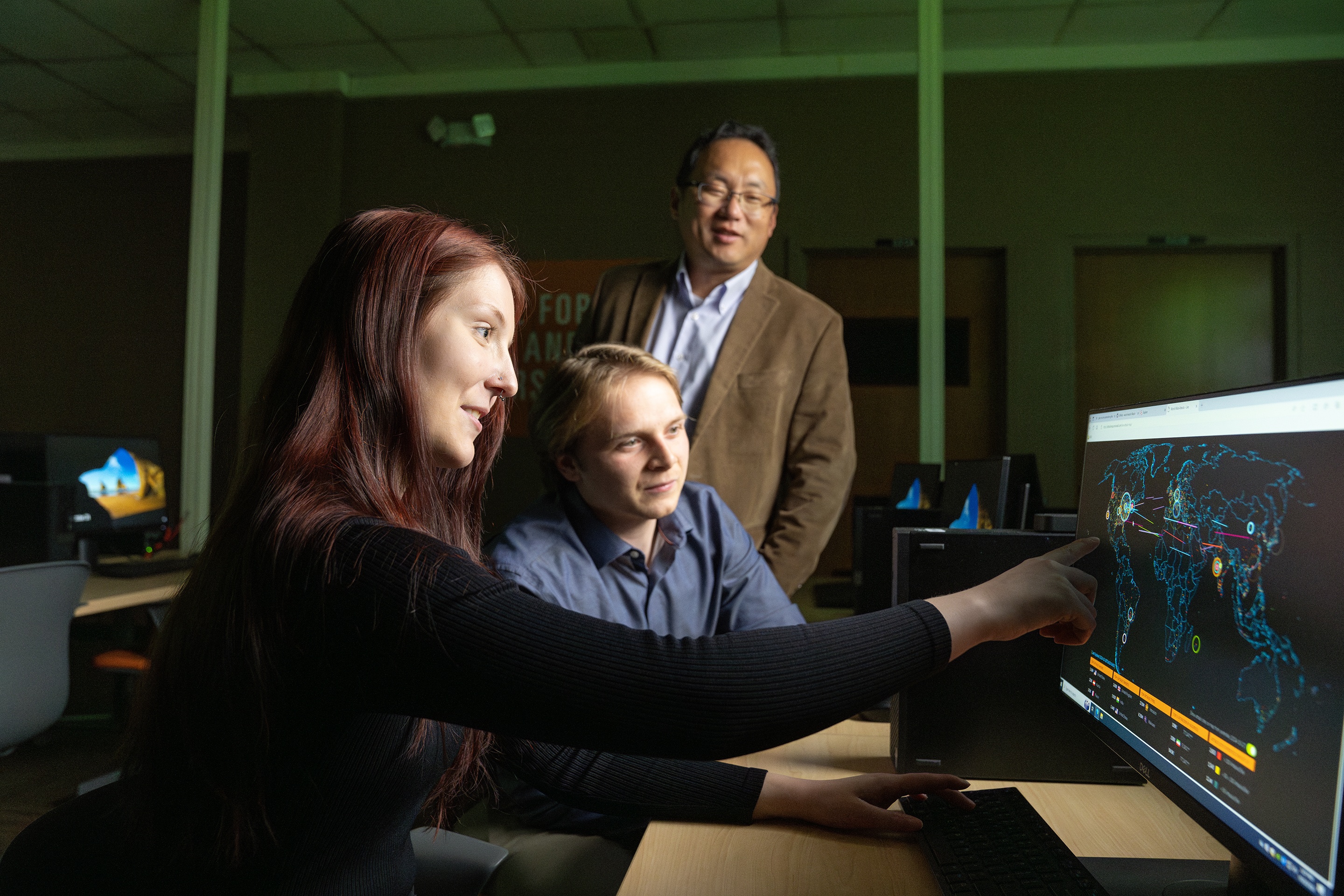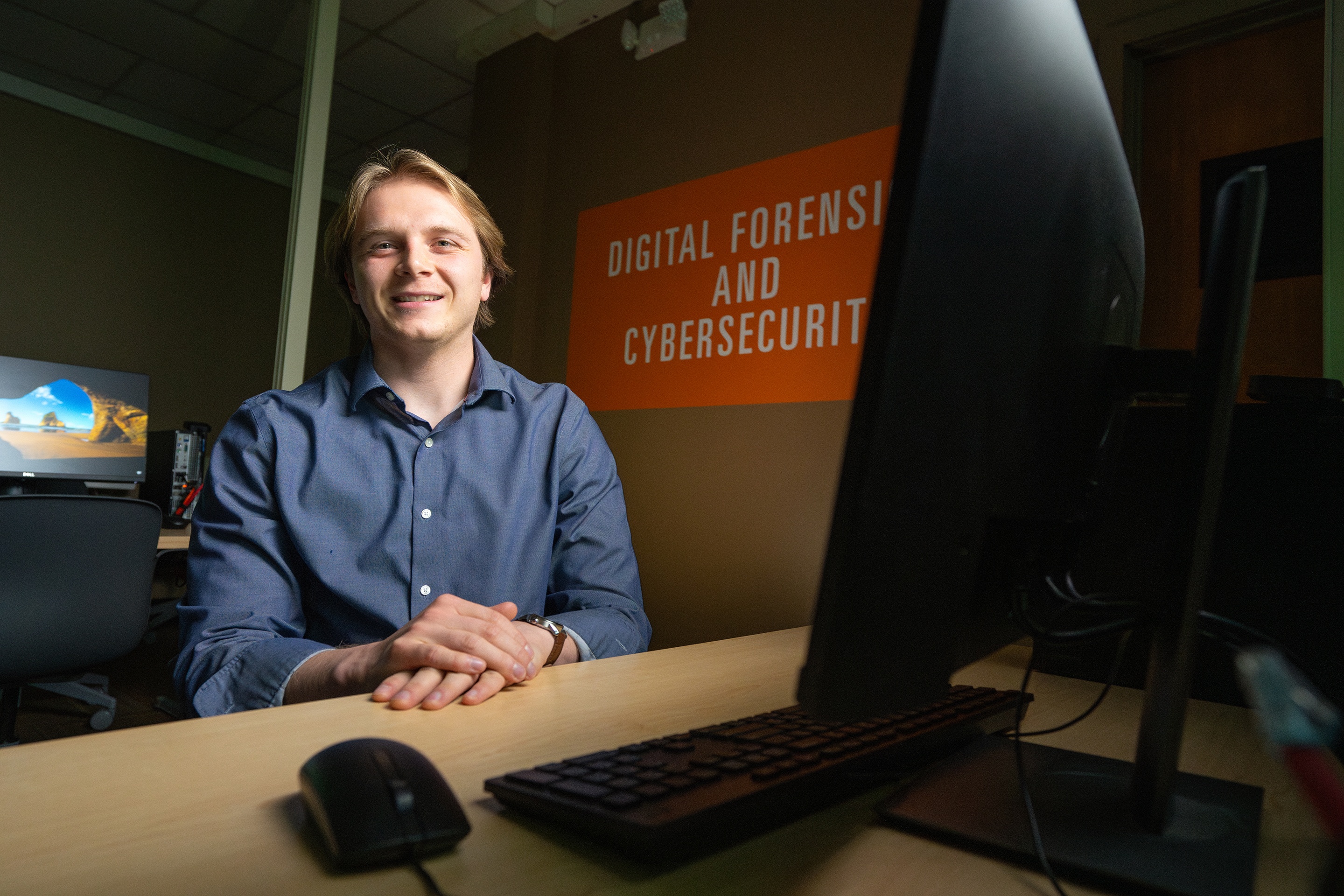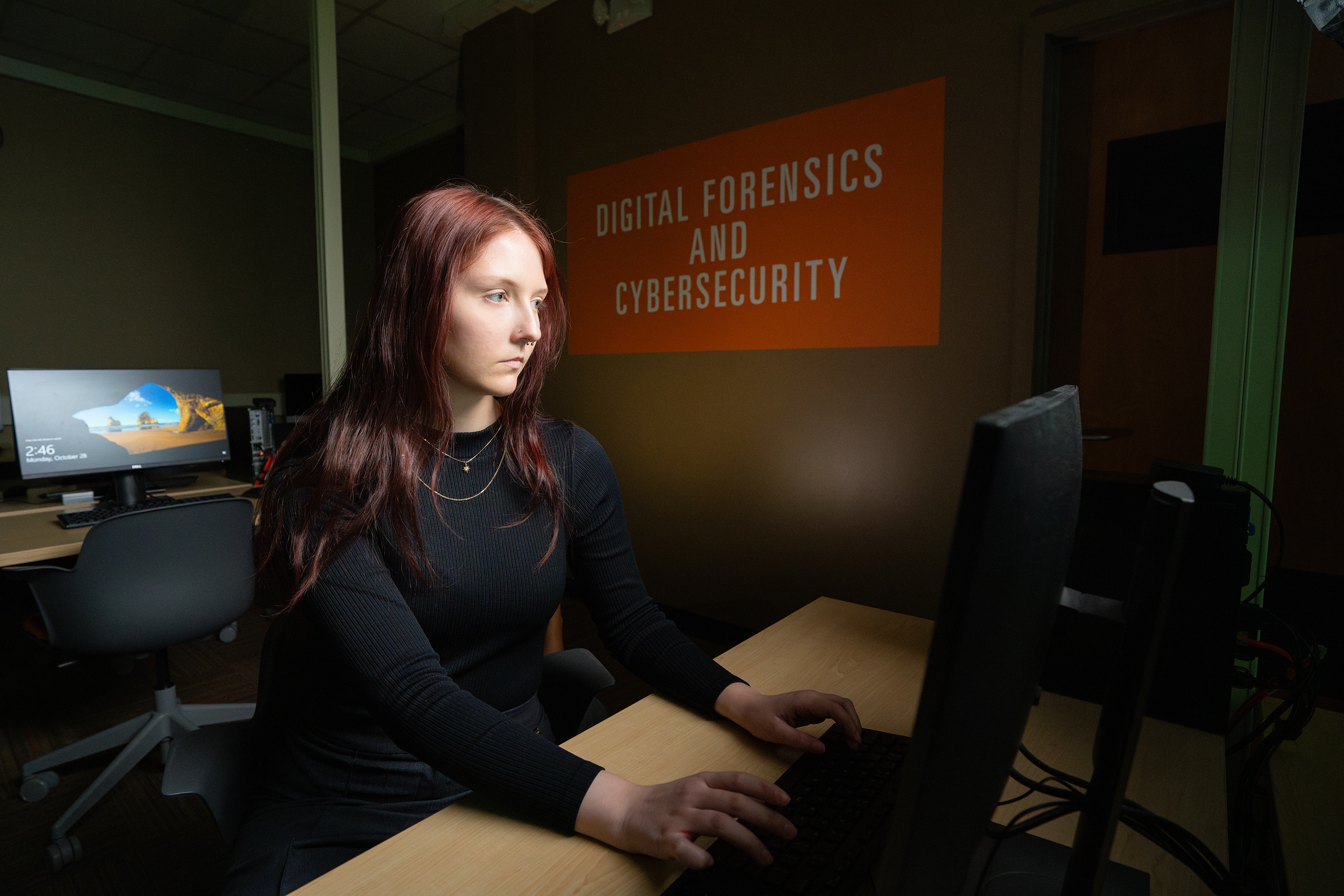
BGSU computer science program prepares students for in-demand careers in cybersecurity
Estimated Reading Time:
Students bolster their cybersecurity education through experiential learning and state-of-the-art facilities
By Branden Ferguson
Home to Ohio's first computer science program, Bowling Green State University is again leading student learning opportunities and experiences around a growing digital issue: cyberattacks that are becoming more sophisticated and prevalent.
In April, BGSU was selected as the only four-year, public institution in the region to serve as a Regional Programming Center for the Ohio Cyber Range Institute. The statewide collaboration between higher education institutions aims to educate Ohioans about the growing importance of cybersecurity and its role in driving workforce development and economic vitality.
"As a member of the Ohio Cyber Range Institute, BGSU has access to advanced cybersecurity training resources, which include virtual labs, educational programming and hands-on training materials," said Dr. Jong Kwan "Jake" Lee, chair of the BGSU computer science program. "As a member, BGSU plays a direct role in training the next generation of cybersecurity professionals."
With 26% employment growth expected for computer science within the next decade, the need for an educated workforce is increasing nationwide, according to the Bureau of Labor Statistics.
“In the world, there are close to 4 million unfilled positions in cybersecurity and nearly 1.5 million of those positions are located in the United States,” Lee said. “Cybersecurity sectors are no longer waiting for graduates to come to them. Instead, they are reaching out to our students before they graduate, offering them internships and training them for currently open positions."
At BGSU, two of those students are computer science majors Nicholas Sparks and Skye Bielstein.
In addition to learning alongside the University's world-class faculty, both have gained real-world insight through experiences and projects with global companies.

On campus, Sparks and Bielstein said the state-of-the-art BGSU digital forensics and cybersecurity lab housed in McLeod Hall helped them to apply what they've learned in the classroom to real life.
“I used the lab and always thought of it as a sandbox for us to play in and test our knowledge,” Sparks said. “I was able to take what I learned in the classroom and immediately put it into action and see results.”
Operating on its own network, the lab empowers students to simulate cybersecurity attacks without risk to the rest of campus. In the lab, half of the students go on the offensive and attempt to hack the system, while the other half attempt to resolve the issue.
“The lab emulates an environment similar to what I will see in future jobs,” Bielstein added. “I have been able to get a real feel for the work environment, using real-world equipment and technology to prepare for my future career.”
Outside of the lab, Sparks and Bielstein have leveraged opportunities fostered by BGSU faculty to help solve computer science and cybersecurity problems for companies.
“Companies bring in real-world projects for our students to work on during capstone project courses,” Lee said. “Even if they are only doing software development work, our students take a holistic approach and review all the computer system programming code to find security weak points.”
With multiple career paths to pursue, Bielstein attributes her success to the professors and industry professionals who helped her to learn everything she could about cybersecurity
“Computer science, especially cybersecurity and digital forensics, can be a challenging field, but with their support and willingness to share their experiences, I was able to succeed,” she said. “They really helped me evolve my way of thinking and the way I process information. They want to see me go into the real world and create public good.”

Empowered by their BGSU education and experience, Sparks and Bielstein have already taken their talents into the workplace, completing multiple internships and preparing for their future careers.
“I completed two internships before realizing which sector of cybersecurity my passion lies,” Sparks said. “I completed internships at Crown Equipment where I learned more about protecting a company from cyberattacks, before completing an additional internship for Carpenter Technology. During my second internship, I learned more about the government sector of cybersecurity through Carpenter Technology’s government contracts. I quickly realized that I had a greater passion for cybersecurity regarding national and global issues.”
Bielstein said she also found her passion within cybersecurity, currently completing her second internship with Columbus-based Nationwide Insurance.
“In my first internship with Nationwide, I worked on automating cyber-related solutions, allowing me to expand my horizons and switch over to a different team that helped me better align myself with what I'm passionate about," Bielstein said. "Now, in my second internship, I’m in the cybersecurity operations center, working on phishing and threats research. I get to research cyber fraud and investigate threats that affect people every day. I’ve always wanted to help people, but health care was never in the cards for me. However, helping people through cybersecurity and fraud prevention has allowed me to make a real difference.”

The BGSU Bachelor of Science in computer science is accredited by the Computing Accreditation Commission of ABET, and the cybersecurity specialization courses follow the cybersecurity and digital forensics standards set by the National Institute of Standards and Technology and align with the National Initiative for Cybersecurity Education Framework.
Related Stories
Media Contact | Michael Bratton | mbratto@bgsu.edu | 419-372-6349
Updated: 11/08/2024 10:44AM




